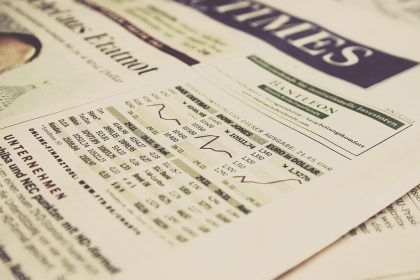The Dow Jones Industrial Average hit a new all-time high yesterday. There are a few reasons why the Dow might be poised for bigger wins.
2019 has been a very interesting year for the stock market. While it has had its ups and downs as should be normally expected, it’s performed quite impressively regardless of certain issues. One of the most popular issues that have affected the stock market and the economy at large is the trade war between the U.S. and China that has been going on for a while now. Both countries have repeatedly slammed each other with tariffs that have had significant effects on both economies. However, both countries seem to be slowly sheathing their swords and the stock market is responding.
Yesterday, the Dow Jones Industrial Average (DIJA) shot to a new all-time high most likely on the back of a successful phase one of the U.S.-China deal. It hit 28,235 cementing year-to-date (YTD) returns of about 21%. Even with all the good news, there’s still a good enough chance that the Dow will shoot higher.
Despite the trade tensions, the Dow has still been rising so far. Several other factors including a satisfactory job market as well as better-than-average indices in general for the U.S. economy have all contributed to the rise of the Dow. With significant progress made with the deal between the warring countries, there is almost a complete guarantee that the Dow will rise higher as both countries dissolve their respective grievances.
There were also a lot of times when economists were very sure that a recession was imminent. Mostly because of the trade war, the manufacturing sector seemed to slow down considerably as even the ones that could handle it had to jack up prices to ensure that losses were avoided. In recent times, however, it would seem that the talks of a recession have been considerably reduced and the general economic atmosphere has been just a little more bullish.
The government also seems a lot more willing than they have been all year. Speaking to The Washington Post, U.S President Donald Trump’s economic adviser Larry Kudlow predicts a much better economy:
“Tariffs will be much more stable for quite a while. Some of the obstacles to growth, including the Fed and trade uncertainties, are being removed, and that will have a powerful positive impact on the economy.”
All of these have ensured to a large extent that much of the uncertainty surrounding the economy has begun to dissipate. This points to the possibility of a better end of the year, and on to 2020.
The DIJA, however, seemed to slacken earlier today. There’s a chance that this means there’s more red trading to come, but it’s also possible it’s a natural drop because the earlier excitement about the deal’s phase one has started to dissolve.
It’s important to add that while the U.S. government has been at the forefront of the announcements regarding the trade war, China’s announcements haven’t been as effervescent. In fact, while Trump has said he expects that the deal will be finalized sometime in the next couple of weeks, China has notably avoided any specifics, however vague.
next